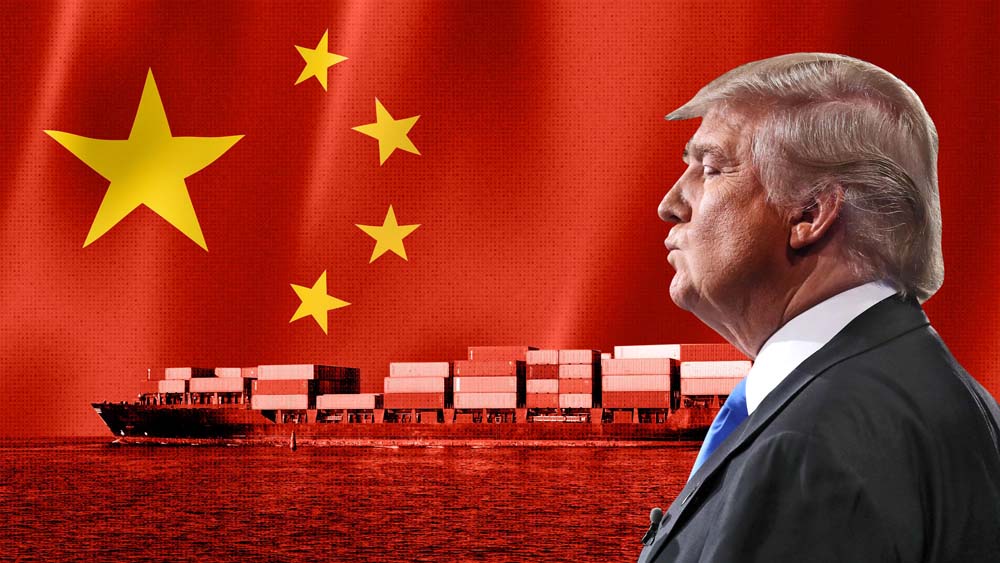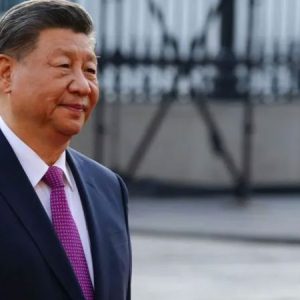17 April, KATHMANDU — After a week of tariff chaos, the US has settled into a concentrated trade war with China. President Donald Trump levied tariffs on China during his first presidency; now, rates are much higher, as Trump has announced 145% tariffs on Chinese imports. Beijing, for its part, has responded with 125% rates on US goods.
Who will win this standoff? On the question of which superpower can better withstand the pain, views are mixed.
On one hand, China depends much more than the US does on exports, which stand to be harmed, as investor Steve Eisman noted to CNN’s Laura Coates. (Exports account for 19.7% of China’s GDP, per the World Bank; for the US, that figure is 11%.) “The US, of all developed countries, is the most insular economy of all,” Eisman said. “Look, nobody’s going to do well in a trade war … but if you’re asking me which country is in the best position to withstand a trade war, hands down that’s the United States.”
Some commentators focus more on consumers. In a Foreign Affairs essay, Adam S. Posen argues that, currently, the US needs Chinese goods more than China needs the US market. In Posen’s view, it was irresponsible for the Trump administration to seek to eliminate that trade deficit without first creating domestic sources for the very things the Trump administration wants to make instead of import, like pharmaceuticals, cheap microchips, and critical minerals.
Consumer demand in China could be part of the equation, too, as it will help determine how well China can cope with Trump’s tariffs by redirecting goods for domestic consumption. In a Financial Times op-ed, Arthur Kroeber of China-focused macroeconomic research firm Gavekal Dragonomics writes: “China may be losing demand from the US, but this can be replaced by domestic consumer demand, which has been abnormally weak thanks to overly tight monetary policy, and an obsession with pouring state resources into manufacturing. [Chinese leader] Xi Jinping has reversed course and is now serious about boosting domestic demand.” That said, low Chinese consumer demand has been a major story in the world economy since Beijing lifted its draconian Covid-19 lockdowns only to discover that domestic consumer pessimism had become entrenched.
The two superpowers are jockeying for trade supremacy in talks with other countries, too.
The US now plans to use the trade war—and the myriad tariff negotiations it will spark—as a venue to pressure countries to limit their dealings with China, The Wall Street Journal’s Gavin Bade and Brian Schwartz report, citing unnamed sources. “The idea is to extract commitments from U.S. trading partners to isolate China’s economy in exchange for reductions in trade and tariff barriers imposed by the White House,” the Journal reporters write.
Xi, meanwhile, is on a sort of victory lap of capitals in Southeast Asia, where he has presented China as a champion of trade stability in contrast to Trump’s America, the Lowy Institute’s Susannah Patton notes in a Nikkei Asia op-ed arguing Trump’s tariff war could enhance China’s influence in the region. Then again, China’s neighbors may not be swayed by the outreach. As Mary Gallagher writes for the World Politics Review, Vietnam trades heavily with China, but it benefited from the US–China trade war during Trump’s first presidency because manufacturers relocated to Vietnam as a result of it. Plus, Gallagher writes, China “may be hamstrung by its own record of economic coercion in the past as well as its inability to offer anything that replaces Washington’s fundamental competitive advantage: the U.S. consumer.”
































+ There are no comments
Add yours